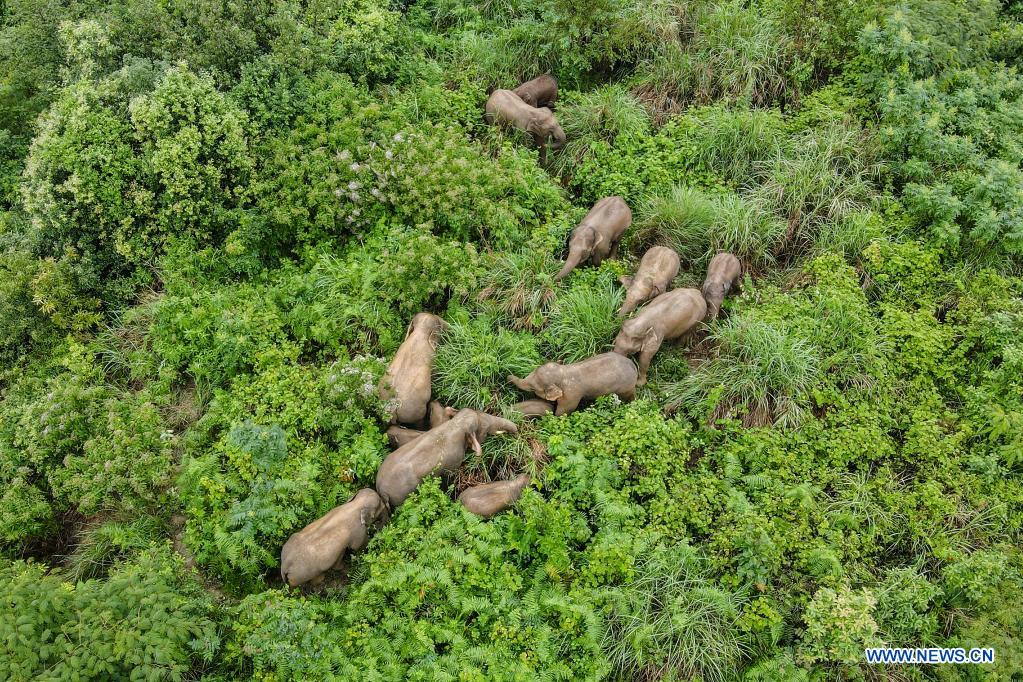Wandering elephants return to own habitat


A wandering elephant herd has finally finished its northbound trip recently, returning to its natural habitat in Mojiang county, southwestern Yunnan's Pu'er city.
Their northbound trip attracted attention from the central authorities, who decided to strengthen the work of elephant protection and restore their habitat.
The herd of 14 elephants, with another stray bull elephant safely sent back to the habitat earlier, were well monitored and their health conditions are stable, according the province's working group on elephant protection.
The herd departed from its traditional habitat in Xishuangbanna Dai autonomous prefecture last year and started traveling north in April. They passed through about eight counties in the province during the trip.
Zhang Zhizhong, director of the wildlife protection department at the National Forestry and Grassland Administration, said at an elephant protection event in Yunnan's Mojiang county that the central government will tighten up the work on elephant protection by continuing the patrol work and rescue mission for wild animals, and also protect the group's habitat.
He said that the government will reinforce the protection and compensatory mechanism to safely protect both elephants and local residents. More efforts will be made in rescuing and breeding the Asian elephant species while establishing a gene bank for artificially bred ones.
He added that more research is encouraged to deliver more scientific solutions for elephant protection. Meanwhile, the government will strengthen law enforcement to fight illegal hunting and the ivory trade.
Promotion of elephant protection is also necessary to create a better social environment for the protection work, he said.
Shen Qingzhong, a senior engineer from the Xishuangbanna National Nature Reserve, said that though it's inevitable that elephants will pay another visit in the future, the nation can manage the issue.
"For elephants, it's their normal behavior to migrate and it's inevitable. Migrating is helpful to wild elephants in finding new habitats and gene exchanges among the group," he said.
"Both the forestry administration and the provincial government are making their efforts to push forward the construction of a national park to protect the elephant. So far, it's quite important to make the elephant stay in the area that suits their survival," he said.
- Xi calls for forging ahead to build strong China
- American youth engage in cultural exchange in Hebei
- Xiplomacy: For the common good of mankind
- Party and State leaders attend New Year gala
- China's science outreach spending exceeds 20 bln yuan in 2023
- Hong Kong eyes 60-percent tourism growth by 2029 in new blueprint




































